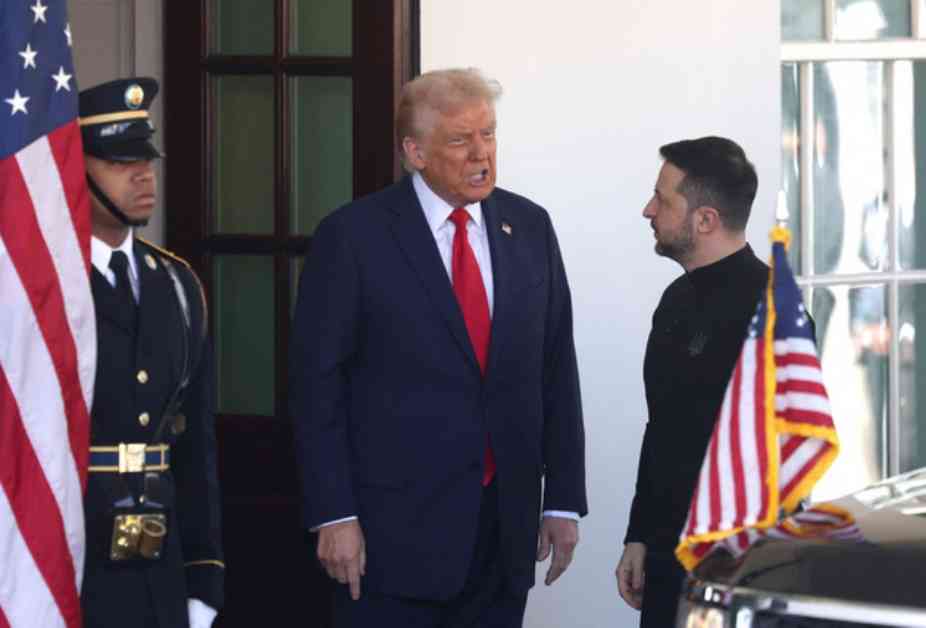The recent events in Ukraine have left many around the world wondering what comes next in this unfolding crisis. The tension between Ukraine’s President Volodymyr Zelensky and US President Donald Trump during a meeting in the Oval Office on Feb. 28 revealed a deeper rift than anticipated. Both leaders, known for their backgrounds in television, clashed over a minerals deal, with Zelensky insisting on security guarantees that were not part of the initial agreement. This unexpected turn of events led to a heated exchange, with Vice President J.D. Vance and Trump accusing Zelensky of ingratitude and lacking bargaining power.
The significance of Zelensky’s insistence on security guarantees cannot be overstated, given Russia’s history of aggression and violations of ceasefires. The US administration’s proposed peace deal, which lacked these guarantees, would essentially amount to a surrender in the face of Russian threats. Zelensky’s bold move to advocate for his country’s security in the face of adversity was met with disdain and dismissal, culminating in his abrupt departure from the White House.
The fallout from this encounter has raised concerns about the future of US support for Ukraine and the broader implications for European security. As Ukraine faces the prospect of losing vital military assistance, other European nations have stepped in to provide security guarantees. The formation of a “coalition of the willing” led by the UK and France aims to fill the void left by the US and ensure Ukraine’s defense in the event of a ceasefire agreement.
Experts weigh in on the current battlefield status, with the Center for Strategic & International Studies (CIS) describing the conflict as a stalemate. While Ukraine’s military capabilities have proven resilient, questions remain about the sustainability of their defense without US support. The prospect of continued European aid offers some hope, but concerns linger about the potential impact of Russian advances on Ukraine’s stability.
The European response to the crisis has been mixed, with calls for a unified approach to bolster defense across the continent. Germany’s newly elected leader, Freidrich Merz, has advocated for a stronger European army to counter future threats. However, until such measures are implemented, the status quo of US and European aid will likely maintain the current front lines and repel Russian attacks, albeit with diminishing capabilities over time.
Trump’s erratic behavior and handling of the Ukraine crisis have raised doubts about his commitment to defending the country and standing up to Russian aggression. His impulsive decisions and concessions to Putin have further complicated the situation, leaving Ukrainians feeling vulnerable and uncertain about the future. Despite these challenges, the resolve of the European allies and the Ukrainian people remains strong, underscoring the importance of unity in the face of adversity.
As the conflict in Ukraine continues to unfold, the need for a coordinated international response becomes increasingly urgent. The events of recent weeks have highlighted the fragility of peace in the region and the critical role that security guarantees play in safeguarding Ukraine’s sovereignty. With tensions escalating and the stakes growing higher, the path forward remains uncertain, but the determination of those involved to secure a lasting peace remains unwavering.

















